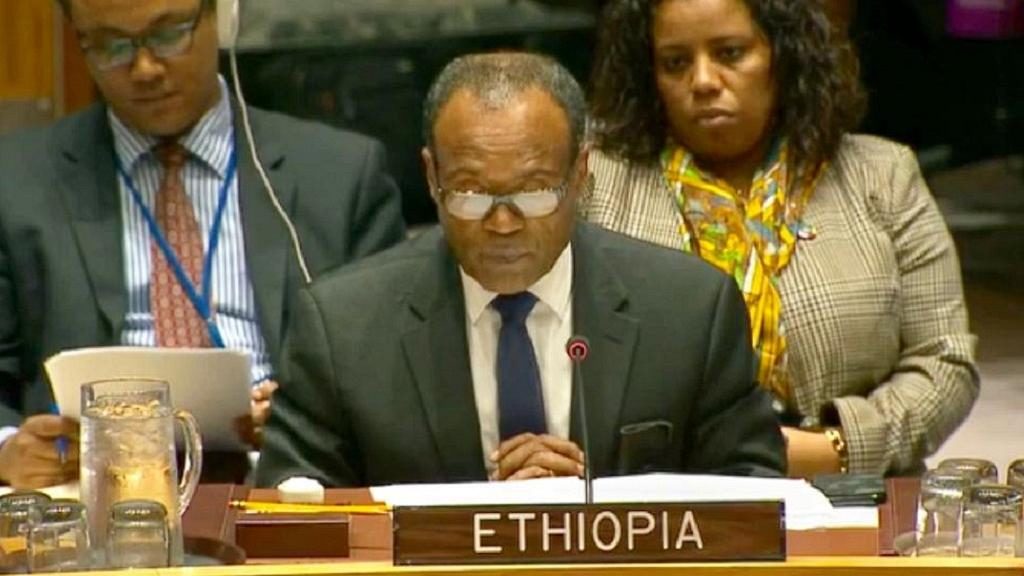
On the heels of the landmark rapprochement between Ethiopia and Eritrea, which ended two decades of hostility, the international community must honour its responsibilities to support historic efforts to build peace in the Horn of Africa, said the Security Council.
Ethiopia is working to restore relations between two of its neighbours, Djibouti and Eritrea, its envoy to the United Nations told the Security Council on Monday. According to ambassador Takeda Alemu, Addis Ababa was doing so in the prevailing spirit of embracing and all-inclusive progress and development of the Horn of Africa region.
He reiterated how dynamics of security and cooperation in the region was fast changing especially after the Ethio – Eritrea peace agreement, and more recently the Eritrea – Somalia normalisation of relations.
Why Ethiopia is entering mediation between Asmara and Djibouti
He stressed that Ethiopia believed there was the need for other countries to benefit from the new lease of the life the region was experiencing hence their move to reconcile Asmara and Djibouti.
“I want to take this opportunity to assure you, Mr President, that the prevailing spirit is one of embracing and not excluding anyone. It is in this spirit that we are trying to do our part to contribute toward the restoration of friendly relations between Djibouti and Eritrea.
“The Djibouti Foreign Minister was in Addis Ababa last week to deliver the message of President Guelleh to my Prime Minister, and he was able to conduct very productive and useful discussions, both with our Prime Minister and his counterpart, our Foreign Minister.
“Ethiopia has expressed its readiness to do whatever is necessary to contribute to the normalisation of relations between Eritrea and Djibouti and it is our firm commitment this is critical for peace and security in our region.
“The new spirit that has been created should exclude no country, and this is the foundation on which Ethiopia’s policy is based. Naturally, this new spirit also demands that no country should no longer be isolated. The Council has an obligation here,” the ambassador added.
He was speaking under the topic: “The politics of the Horn of Africa is in the process of rapid change and with salutary implications,” whiles addressing the Security Council. The Council had on July 30 received the 120 day’s briefing by the Chair of the Somalia-Eritrea Sanctions Committee, including the outcome of his recent visit to the region which took him to Djibouti, Somalia and Ethiopia.
Ambassador Tekeda Alemu’s full address highlighted the positive developments happening in the region, which has enormous implication for the committee and the sanctions regime.
Djibouti seeks UN assistance to resolve the border dispute with Eritrea
Since the Ethiopia – Eritrea peace deal signed in Asmara, Djibouti stepped up its resolve to normalise relations with Eritrea seeking the assistance of the United Nations (U.N.) in that regard.
The Horn of Africa nation’s ambassador to the U.N. Mohamed Siad Doualeh in a letter to the Security Council said they wanted help with international mediation with Eritrea.
Portions of the letter said Djibouti needs U.N. intervention “with the aim of facilitating an agreement between them upon a mutually acceptable means of peaceful dispute settlement,” stressing that they wanted an international settlement or arbitration that would be legally binding.



